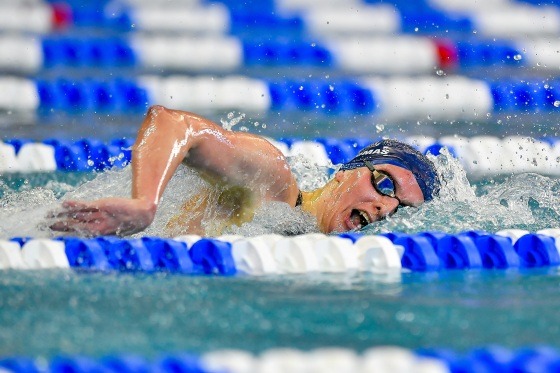Lia Thomas Loses Legal Fight Over Olympic Ban for Trans Women Swimmers
Lia Thomas, who made history in 2022 as the first transgender woman to win an NCAA swimming championship, has lost her legal bid to compete in the upcoming Paris Olympics. The ruling effectively upholds a ban on transgender women who have gone through male puberty from competing in elite women’s swimming events.

Thomas, a former University of Pennsylvania swimmer, had challenged World Aquatics’ eligibility rules, calling them “discriminatory” and arguing they denied trans athletes fair access to competition. But on Wednesday, the Court of Arbitration for Sport (CAS) rejected her case, stating she had no legal standing to contest the policy under the current proceedings.
“The panel concludes that she lacks standing to challenge the policy and the operational requirements,” the court ruled.
The decision means Thomas won’t be able to participate in this month’s Olympic qualifying trials — ending her hopes of competing in the Summer Games in Paris. In a 2022 interview with Good Morning America, Thomas had said competing in the Olympics was a lifelong dream.

The controversial policy at the center of the dispute was introduced in 2022 by World Aquatics (formerly FINA), which banned transgender women who had undergone male puberty from competing in the women’s division. The organization also proposed creating an “open” category where trans athletes could compete, though that division has seen limited development.
Thomas had asked the Switzerland-based CAS to overturn those rules, saying they were not only unlawful and invalid but also violated fundamental human rights. The rules were established just months after her groundbreaking NCAA victory, which brought her both national acclaim and intense backlash.
In a statement following the ruling, Thomas expressed disappointment:
“The CAS decision is deeply disappointing. Blanket bans preventing trans women from competing are discriminatory and deprive us of valuable athletic opportunities that are central to our identities.”

She added that the ruling should serve as a rallying cry:
“The CAS decision should be seen as a call to action to all trans women athletes to continue to fight for our dignity and human rights.”
World Aquatics, however, applauded the ruling. The organization said the decision was “a major step forward in our efforts to protect women’s sport.”
Thomas’ NCAA title win became a flashpoint in the ongoing global debate over trans inclusion in sports. Her participation sparked fierce criticism from conservative media figures and politicians, as well as legal and legislative efforts to restrict trans athletes’ participation.
Among the most vocal critics has been former University of Kentucky swimmer Riley Gaines, who tied with Thomas for fifth place in a 2022 NCAA event. Gaines, who has since become a conservative activist and is suing the NCAA, celebrated the court’s decision on social media, calling it “a victory for women and girls everywhere” — while misgendering Thomas in her post.
LGBTQ advocates condemned the CAS ruling.
Hudson Taylor, founder and executive director of Athlete Ally, said the decision denied Thomas a basic right:
“By dismissing Lia Thomas’ legal challenge against World Aquatics, the CAS has denied her fundamental right to access an effective remedy for acts that violate her human rights. This is a sad day for sports and for anyone who believes that trans athletes should have the opportunity for their experiences of discrimination to be heard and adjudicated like everyone else.”

As it stands, Thomas remains barred from competing at the highest level of women’s swimming — a ruling that may have lasting implications not just for her, but for the future of transgender athletes in international competition.




